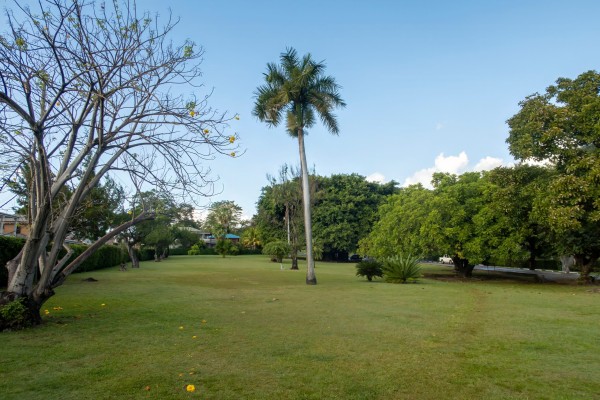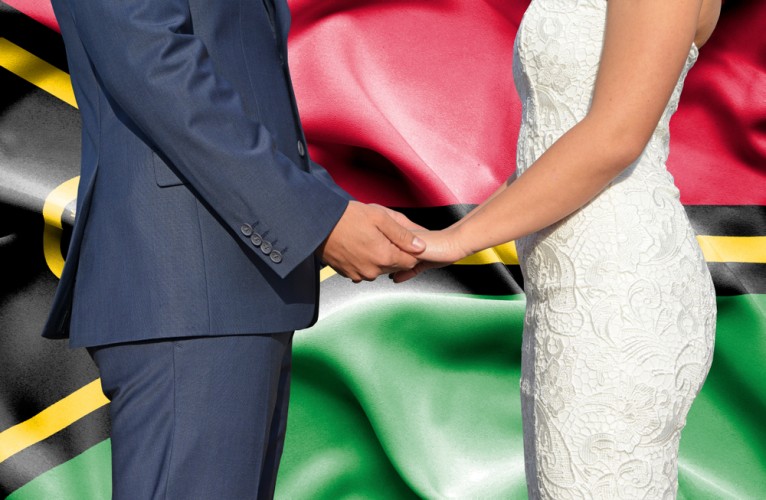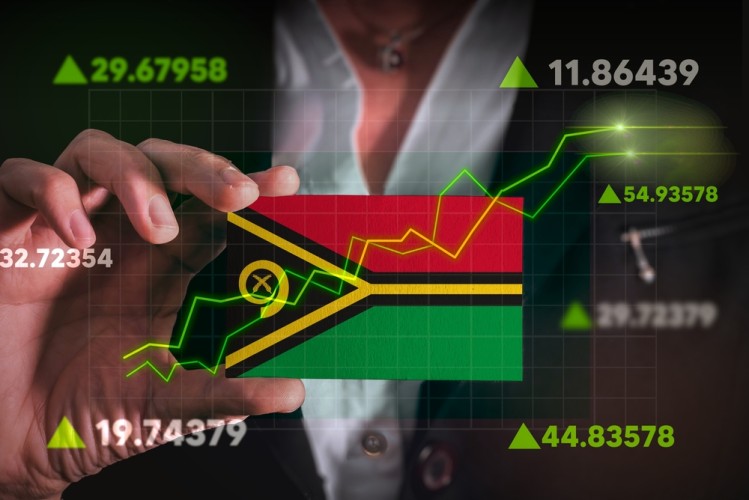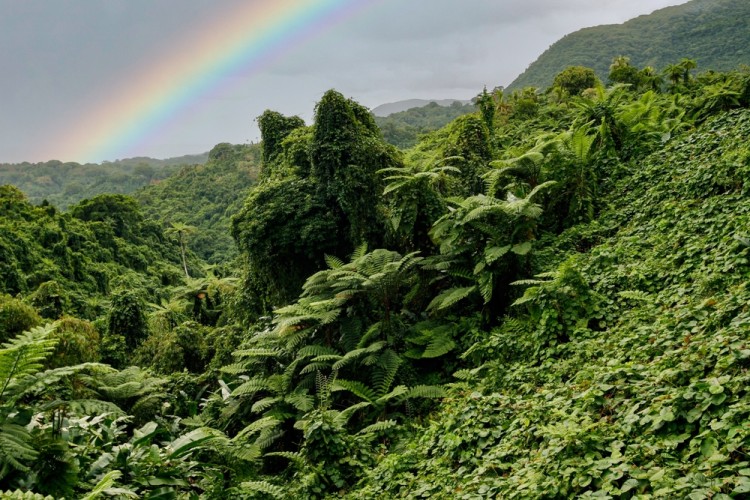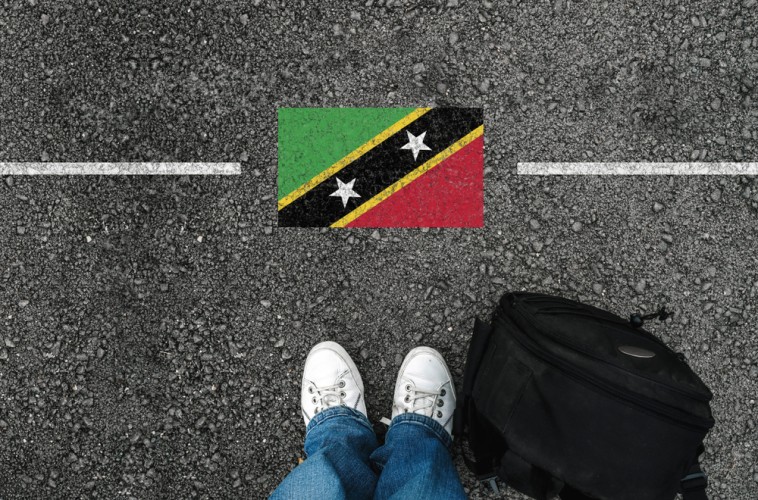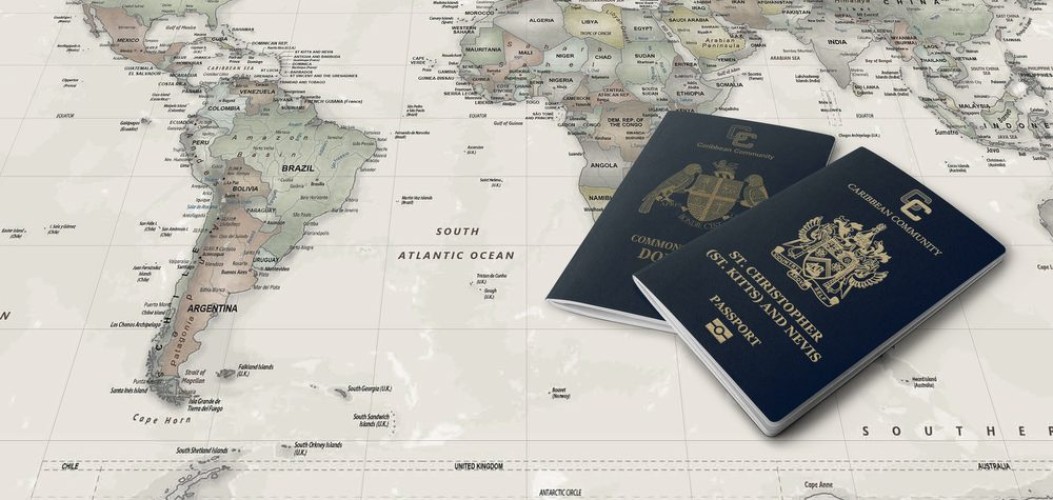Island overview
Dominica is a small country located on the island of the same name in the eastern Caribbean Sea, between Guadeloupe and Martinique. The total area of the country is about 750 square kilometers.
The capital of the country is the city of Roseau. It has a population of only 15,000 people. The country’s population is just over 80,000. About 10% are mulattoes. The official language is English. French and the languages of the local tribes are also spoken on the island.
Dominica has a tropical climate, with hot and humid summers and warm winters. The country is known for its gorgeous white sand beaches and clear waters, as well as numerous waterfalls. There are black sand beaches reminiscent of the island’s volcanic origins
The country’s economy is mainly based on tourism, agriculture and fishing. Dominica is also actively developing its financial sector, attracting foreign investment.
The culture combines African, European, and Caribbean influences. Traditional cuisine includes seafood, meat and vegetables seasoned with local spices. Music and dance are an important part of the country’s cultural life.
The country has many natural attractions such as waterfalls, caves, and national parks.
Despite its small size, Dominica is a popular tourist destination due to its beautiful beaches, cultural activities, and diverse nature.
The country is also known for its rich history, including the remains of Carib settlements and European colonists.
Security in Dominica is one of the government’s priorities. The country has a low crime rate, and most areas are considered safe for tourists. However, just like in any other country, standard precautions should be followed, such as not leaving your belongings unattended or carrying large sums of money with you. It is also recommended to avoid visiting remote areas and follow the road rules.
History of Dominica
The history of the country begins with the discovery of the island by Christopher Columbus in 1493. This event took place on Sunday. Thanks to the Spanish name for this day of the week, the island became Dominica.
The first settlements on the island appeared only in the 17th century, when the British and French began colonizing the region. In 1660, the island was divided between England and France, and each country began to develop its part of the island.
In the 18th century, Dominica became the scene of a struggle between England and France. As a result of numerous wars and conflicts, the island has changed hands several times. In 1805, the country became a British possession, and remained so until 1978, when it gained independence.
Since the 19th century, the country has begun to develop an agricultural industry, growing sugar cane and other crops. In the 20th century, the island became a popular destination for tourists.
Today, Dominica is an independent state that is actively developing its economy and culture. The country attracts tourists with its unique nature, historical attractions, and cultural events.
Attractions
Here are some of the main attractions in Dominica:
Sea Caves: It is a system of underwater caves that are a popular place for diving and snorkeling. They offer beautiful views of the underwater world and a variety of marine life.
Morne Trois Pitons National Park: This nature reserve offers stunning views of the surrounding nature. It is located in the mountains of the same name with three peaks. The purpose of the creation of the reserve in 1975 is to preserve the tropical forests, which are home to many rare animals, birds, and plants. You can contemplate them while walking along the scenic trails.
The famous Boiling Lake is located in the park. Interestingly, the lake is boiling in the middle. The coastal water warms up to 92°C, so tourists need to be extremely careful. A cloud of steam creates a wonderful sight over the lake.
This natural wonder can be observed from an elevated plateau. The Boiling Lake is visited by many tourists every day. The road there is difficult. On the way there is a dense forest, mountain streams, gorges, steep rocky slopes.
Tourists are accompanied to the lake by a guide. In the crater of the volcano at an altitude of 869 m there is a freshwater lake with an area of 1.82 hectares.
Another freshwater lake called Emerald Pool attracts the attention of tourists. At the emerald-colored lake, you can enjoy a six-meter-high waterfall.
Lovers of water wonders can admire them very close to the capital. A special platform has been built to observe the Trafalgar Falls.
The coastal part of the island provides a great opportunity for diving and snorkeling. In the Botanical Gardens of Roseau, you can admire exotic plants, animals and birds.
Of the historical monuments, the Cathedral of the capital of Dominica should be noted. This architectural masterpiece dates back to the 18th century. The cathedral was destroyed and restored more than once.
Visitors are drawn to the preserved buildings of the colonial period near the central square of the Old Market.
The conditions for tourists in Dominica are quite favorable. The country offers many beautiful beaches, crystal clear waters for swimming and water sports, and scenic trails for nature walks.
In addition, there are many restaurants, cafes and shops where you can buy souvenirs and other goods. However, it is worth considering that the country has quite high prices for accommodation and meals, so it is recommended to research local prices and offers before traveling.
Both luxury hotels and villas are available here, as well as more budget-friendly accommodation options such as apartments and guest houses. Most hotels offer comfortable rooms with amenities such as air conditioning, free Wi-Fi, mini-bar and satellite TV. It is also worth considering that many hotels are located by the sea, which makes them an ideal place for a beach holiday.
Tourists need to remember that the weather in Dominica is warm all year round. Even nighttime temperatures do not drop below 20°C, but this does not mean that any time of the year is ideal for a comfortable stay. The period from June to October is marked by heavy rainfall and devastating hurricanes.
A few words about infrastructure. There are two international airports at the service of tourists. Large planes land in Douglas Charles, where the runway is quite long. From the capital of the country, the airport can be reached in an hour.
There are no railways in the country. Minibuses are the main mode of public transport. Like many Caribbean countries of the same level of development, Dominica lacks the funds to maintain all its road infrastructure. On the outskirts and in the countryside, it is in a deplorable position. On the other hand, the main highways are always repaired on time.
Real Estate
Real Estate is represented by various types of properties, including residential buildings, apartments, villas, and commercial premises. Property prices vary significantly depending on the location, size, and condition of the property. On the market, you can also find land for construction. Both local and foreign investors buy or rent real estate.
Citizenship by Investment
The Citizenship by Investment Program in Dominica is one of the most popular programs in the Caribbean region.
The program was developed in 1993 and since then has attracted thousands of investors from all over the world. In recent years, it has been actively developing, offering new investment opportunities and improving the quality of services provided.
In particular, this concerns the improvement of conditions for investors and their families. For example, in 2020, the number of relatives who can be included in the list of likely candidates for Dominica citizenship by investment was increased.
Benefits of the Citizenship by Investment Program
It is difficult for an ordinary person to understand people who invest a lot of money in the development of a small distant country, which is surrounded by water on all sides. but the truth is, it has many benefits for investors and their families:
- Visa-Free Travel: visa-free or visa-based travel to more than 140 countries, including the Schengen Area, and China. In the “Passport Index” compiled by the authoritative international consulting company Osher Advisors, the identity card of a citizen of Dominica ranks 34rd in the world ranking in 2024. This is a very high figure;
- Investment Opportunities: the opportunity to obtain a second citizenship for yourself and your family for life through real estate investments, or non-refundable contributions;
- Family Inclusion: the right to include many dependent relatives of the investor among the applicants for citizenship;
- No Stay Requirements: there is no need to spend money and time on travel to personally attend the registration procedure. All tasks are solved by official representatives;
- Security: asset protection and confidentiality;
- Favorable Tax Regime: The country has no capital gains, inheritance, or wealth tax, providing a favorable environment for wealth preservation and financial planning.
- Freedom: there are no obligations to the country to know the state language, history, culture, customs, traditions. You don’t need to take any tests
- Dual Citizenship: it is possible to receive another citizenship.
- Political Stability: The country’s stable and democratic government ensures political, social, and economic security for investors and their families.
Dominica is a member of the Commonwealth of Nations. This status allows islanders to choose the best higher education institutions in the UK, Canada, and Europe to study. School-age children have access to education according to Commonwealth standards. For medical care, you can go to one of the seven public clinics.
Investors who obtain citizenship in Dominica are concerned about issues related to taxation in the country. It is more than favorable for non-residents. If a permanent resident of Dominica pays taxes on all income, then a non-resident pays only on the income that he receives from working in the country. Moreover, in some cases, the tax for the rental of a non-resident’s property is paid by the tenant.
Recall that the tax burden can be reduced by receiving deductions for education and utilities. If you don’t want to pay rental tax, buy it anywhere, but not in Roseau and Portsmouth.
Conditions for acquiring citizenship for investment
To obtain Dominica citizenship by investment, The primary applicant must be an adult to become a citizen. Several options are available:
- Donation Option: Single applicant – US$ 200,000
Main applicant and up to three dependents – US$ 250,000
Additional Dependants – Under 18 – US$ 25,000 EACH
Above 18 – US$ 45,000 EACH - Real Estate Option: Real Estate Investment – US$ 200,000
Government Fees :
Single applicant US$ 75,000
Main applicant and up to three dependants – US$ 100,000
Dependant under 18 – US$ 25,000
Dependant Over 18 – US$ 40,000
EACH Additional Dependant – US $ 10,000 EACH
Family members can be included in the application for citizenship. The main investor can include:
- Spouse
- Children up to age 30 years
- Dependent parents over 65 years
All applicants will need to be of good character and undergo the Governments due diligence formalities: Investors must provide
- Police Reports – evidence of a clean criminal record
- Have no outstanding visa refusals
- Various documentation, including financial documents, employment/ business documents, ID, proof of address
Features of acquiring citizenship for investment
The government agency that administers the programme reviews the applications submitted by citizenship applicants. The CIU checks whether a person is trustworthy, reject the application if the candidate indicates false information in it.
Once the application is approved, principal applicants and dependents over the age of 16 are interviewed. Documents are issued in Dominica.
The procedure for obtaining Dominica citizenship by investment includes several stages:
- Filling out an application for citizenship and collecting the necessary documents;
- Due Diligence;
- Attracting investments in the country’s economy.
At the end of the procedure, the investor receives a certificate of naturalization, which confirms the acquisition of citizenship.
In 2024, the processing time for applications to Dominica’s Citizenship by Investment program is approximately 5-6 months from the submission date to the Citizenship by Investment Unit (CIU). Applicants typically spend about 2-6 weeks beforehand to gather all necessary documentation. Osher Advisors dedicated experts team will advise applicants throughout the entire process, applications can be submitted remotely without the need for travel.
Until 1993 it was not possible to gain Dominican citizenship without residing in the country. The Dominican government changed that with the Economic Dominica Citizenship programme whereby the need for residency to gain citizenship was waived. Applicants making such a contribution are granted full citizenship for themselves and their family.
You can stay in China for no more than 30 consecutive days without a visa.
No.
In 2020, the government decided to increase the number of relatives of the investor who are eligible for a passport in exchange for investment.
To be considered for citizenship by investment in the Commonwealth of Dominica, applicants must submit the following list of documents:
- Valid passports of the investor and adult family members.
- 8 photos for each participant, the same size as on the passport.
- Marriage or divorce certificates.
- Military ID.
- Residential address.
- A letter from your bank.
- The result of the medical examination.
- Document on education.
- Proof of no criminal record.
- Bank statement for the past year.
- Birth certificates of applicants.
- Three recommendations: one for work, two for personal qualities.

